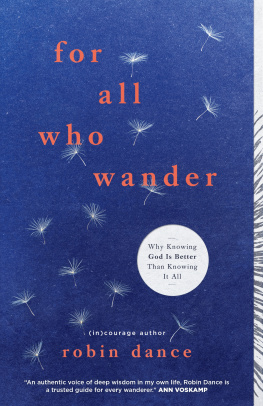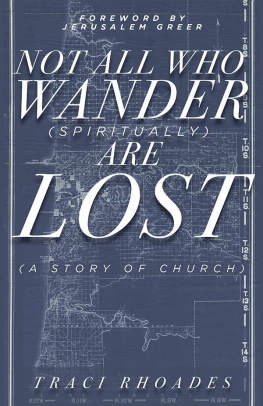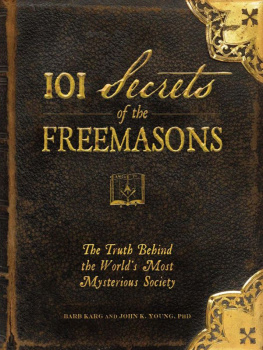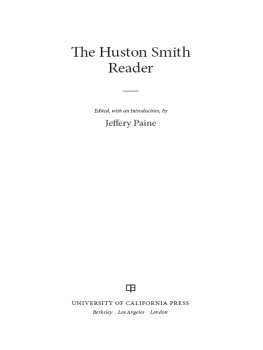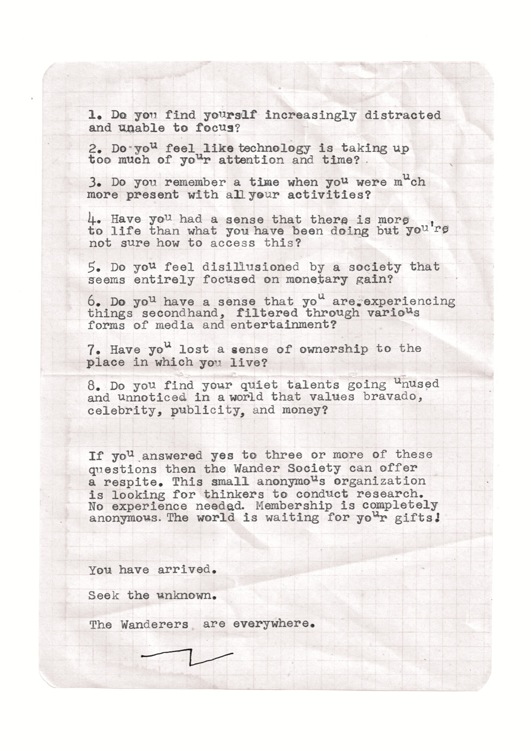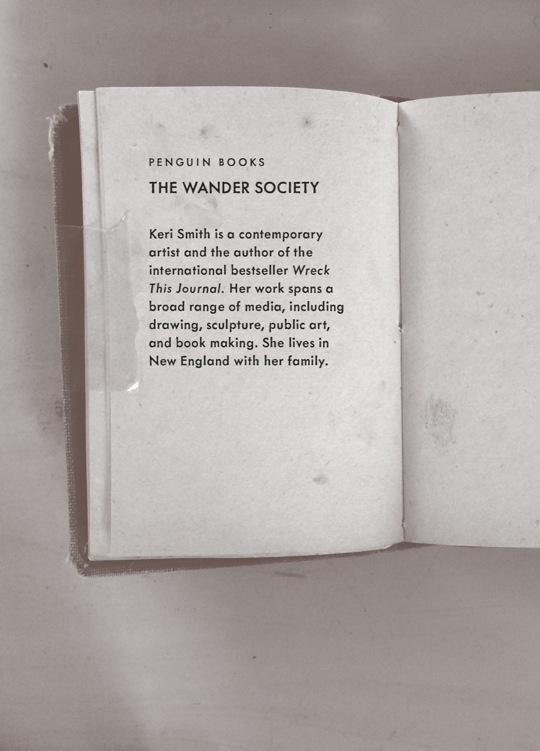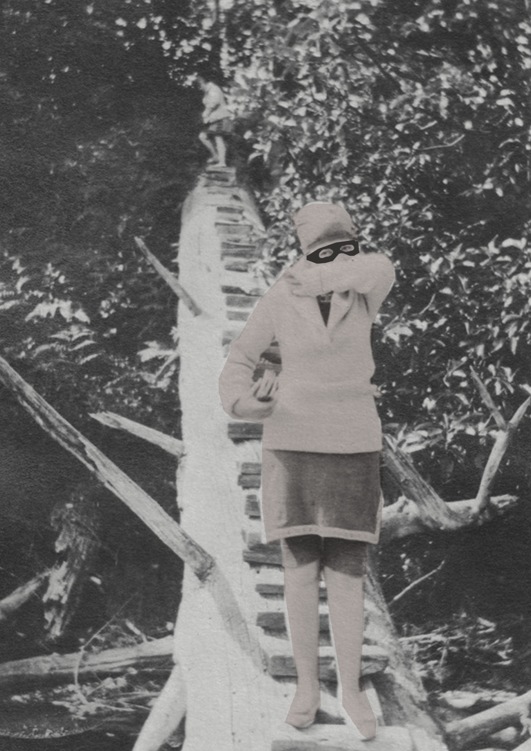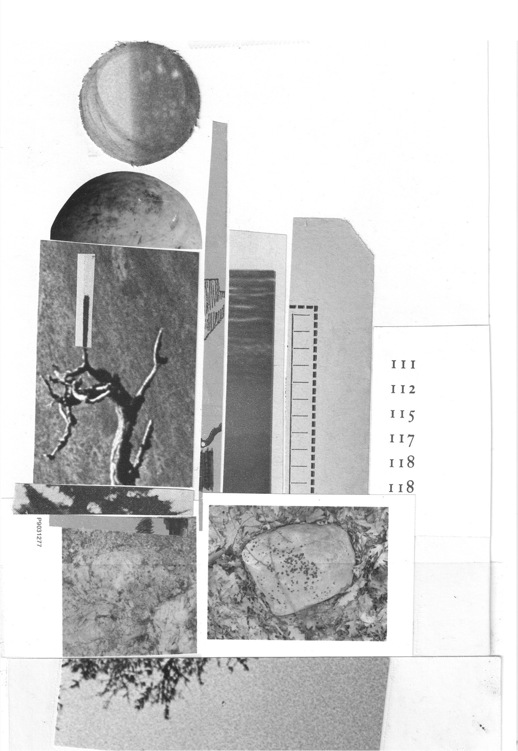Penguin supports copyright. Copyright fuels creativity, encourages diverse voices, promotes free speech, and creates a vibrant culture. Thank you for buying an authorized edition of this book and for complying with copyright laws by not reproducing, scanning, or distributing any part of it in any form without permission. You are supporting writers and allowing Penguin to continue to publish books for every reader.
While the author has made every effort to provide accurate telephone numbers, Internet addresses, and other contact information at the time of publication, neither the publisher nor the author assumes any responsibility for errors or for changes that occur after publication. Further, the publisher does not have any control over and does not assume any responsibility for author or third-party Web sites or their content.
This book is dedicated to all of the wanderers who have gone before and those who have yet to begin. Solvitur Ambulando.
INTRODUCTION
Dear Reader,
About two years ago, I was browsing in a favorite dusty old bookshop, one that I frequent when I am in need of a random book find. On this particular day I found myself in the poetry section and picked up a worn hardback copy of Leaves of Grass by Walt Whitman. As I began to flip through the pages, I noticed some handwriting in the book. On the inside cover was written WW will show you the way. On the title page was scribbled Solvitur ambulando, and underneath that, The Wander Society with a small thunderbolt symbol. Fanning through the pages, I found some underlined passages and several more interesting-looking symbols in the margins.
After seeing this I found myself a bit winded and excited. It seemed that this particular volume had its own mystery embedded in its pages. What was the Wander Society? What did the random phrase mean? I wanted to find out more.
I carried the book up to the register and excitedly paid the clerk the fifteen dollars. I left hurriedly, feeling like I had just received a secret message from the universe, determined to find out as much as I could about the Wander Society.
I started with a Google search and uncovered a website for the Wander Society. I hoped it would provide a clue into the groups reason for being. Ill admit: Part of me was prepared to be disappointed, thinking that perhaps this was some kind of promotional campaign for a large uncaring corporation. But when I plugged the URL into the browser, I was greeted with a black page featuring only a white thunderbolt in the middle of the page. Nothing was clickable. Next, I looked up Solvitur ambulando . The phrase was Latin, and translated to It is solved by walking. Interesting, but I still wasnt sure what came next. This was clearly going to take a little more detective workpossibly a lot more. But where to go now?
I decided to consult Walt Whitman. He was the source of my discovery after all, and I was intrigued by the message WW will show you the way.
I should preface the next few paragraphs with the fact that I have limited training in literature. Aside from high school, and both an English literature and poetry class in college, I am basically self-taught. But having worked for upwards of twenty years in bookstores, I do consider myself fairly well read. In my twenties and thirties, I devoured as much classical literature as I could, determined to uncover the keys to existence in the classics of philosophy, Eastern religions, comparative mythology, postmodern theory, cultural theory, and more. In a period that I referred to as my research, I dove headfirst into works by Socrates, Spinoza, Baudrillard, Benjamin, Barthes, Certeau, Debord, Derrida, Foucault, Eco, Emerson, Husserl, Nietzsche, Sartre, Thoreau, Watts, Steinbeck, Kerouac, Campbell, and Capra just to name a few.
However, despite all of my reading during that time, I am sad to say I never sat down with Whitman. I had read about him in the poetry class and been exposed to a couple of his most popular poems, but the rest of his work somehow eluded my gaze. When I think about it now, his absence during this time seems strange. He definitely frequents a lot of the same circles of literature I was dipping into. But I believe that the right books come to you at a time when you are ready to read them, and Ive come to think I wasnt ready for Whitman. Yet.
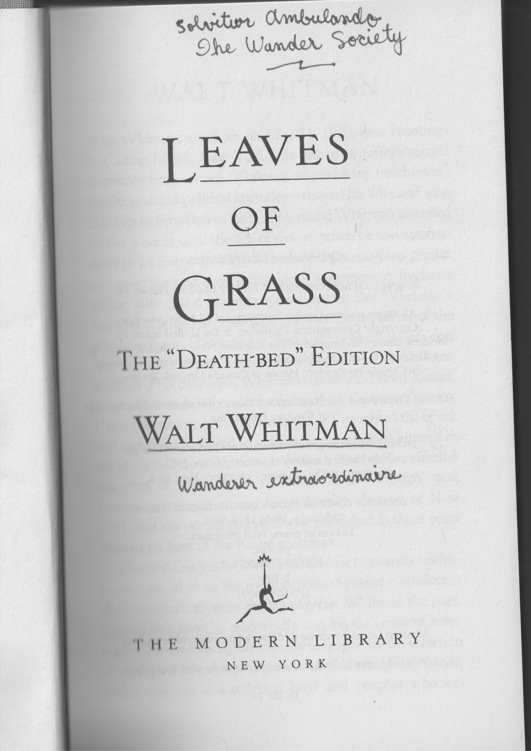
And so, it is in this way that I came to spend a sun-dappled afternoon on a hammock with Leaves of Grass . Only a few other times in my life have I been so moved by a book. Marquezs Love in the Time of Cholera , Kerouacs The Dharma Bums , Campbells The Hero with a Thousand Faces , Steinbecks The Grapes of Wrath , and a few others left me with a feeling that my heart had just expanded a couple of sizes. Somehow these books sit in your body and leave it altered in a way that is ineffable. But reading Walt took that experience further.
It was in many ways a physical experience: my chest ached, my breath quickened, and my face flushed. But it was also like the act of reading it was literally causing my soul to open. The best way I can describe first reading Whitman is that it was similar to the sensation of falling in love with someone. You inhabit the world with a giddiness and a joy, as if just existing in the world makes you feel like you are going to explode. (Even now, writing this feels inadequate, the words clichd.)
Reading Walt Whitman woke up a part of me that wants to run and yell and punch things. Its a feeling similar to when I am working on a creative project and a new idea comes in, and I know I am fully alive and awake and ready to take over the world. I felt like Walt was speaking directly to me in such a close, intimate way, sharing all of his secrets, giving me access to another plane of consciousness, one that I had only scratched the surface of in all of my research.
As I moved through Leaves of Grass , I noticed the following passage was underlined:




